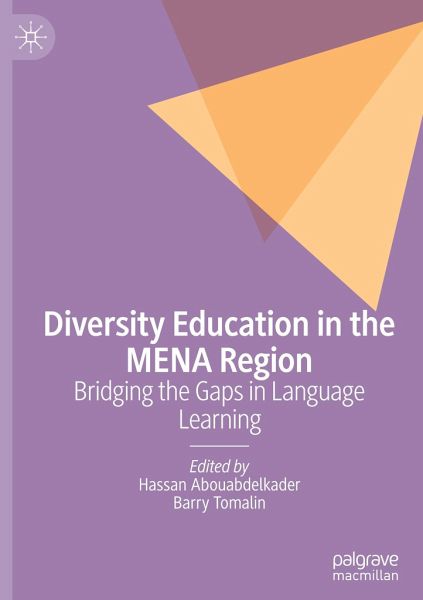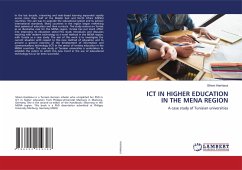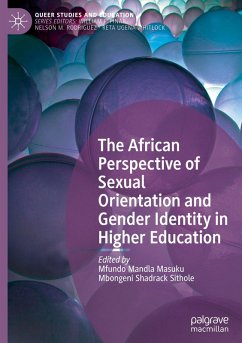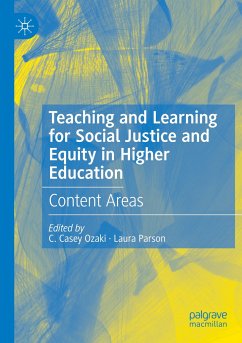
Diversity Education in the MENA Region
Bridging the Gaps in Language Learning
Herausgegeben: Abouabdelkader, Hassan; Tomalin, Barry

PAYBACK Punkte
57 °P sammeln!
This book outlines a landscape of diversity education in the MENA region and its repercussions on learners' abilities, outcomes, and prospects. It addresses the concerns of language educators, curriculum designers, language education researchers, students and trainers. Theoretically, the issues of diversity, inclusion and equity share common principles and insights; yet they are not conceived of in this book as interchangeable. These subtle distinctions, as delineated in this book, show that they are complementary and include the principles of quality education which leverage human rights, sus...
This book outlines a landscape of diversity education in the MENA region and its repercussions on learners' abilities, outcomes, and prospects. It addresses the concerns of language educators, curriculum designers, language education researchers, students and trainers. Theoretically, the issues of diversity, inclusion and equity share common principles and insights; yet they are not conceived of in this book as interchangeable. These subtle distinctions, as delineated in this book, show that they are complementary and include the principles of quality education which leverage human rights, sustainability and promotion of the human capital. What makes this book distinctive is that it reconsiders the existing pedagogical trends in terms of the current social upheavals, and with reference to the principles of development and progress needed in twenty-first century education.














